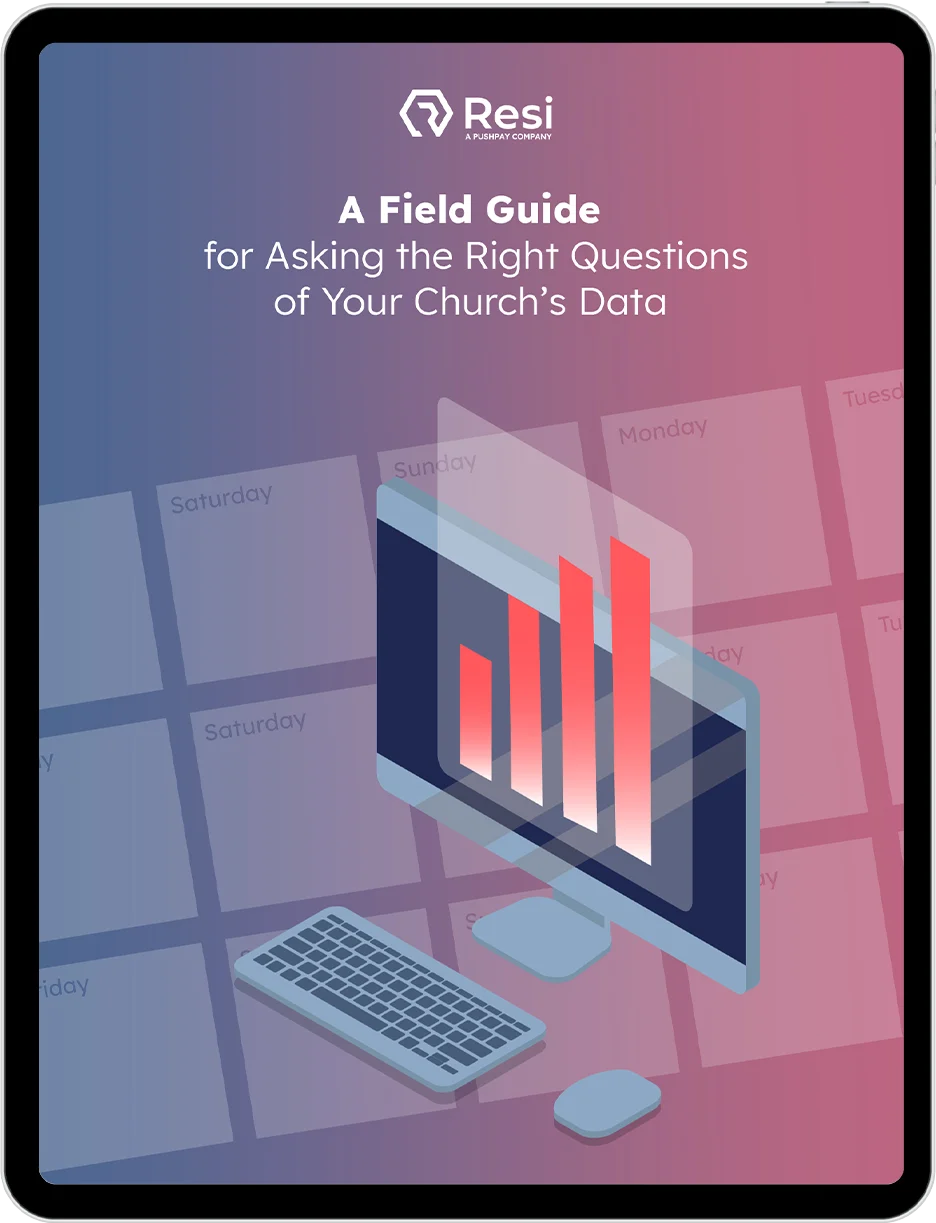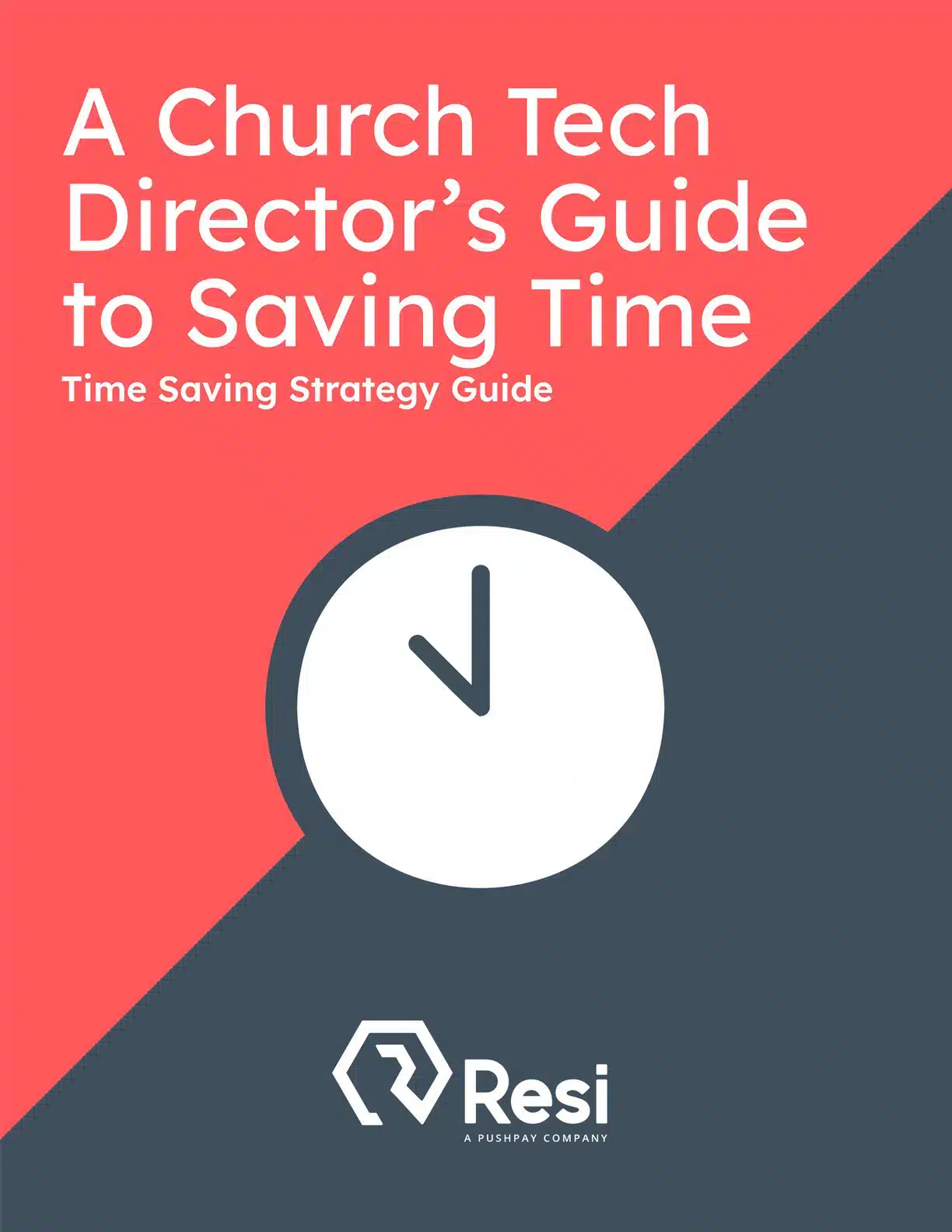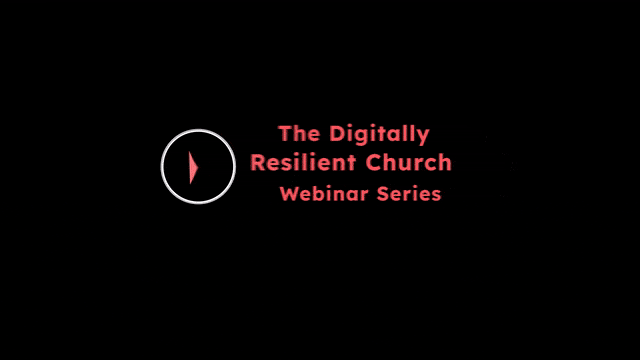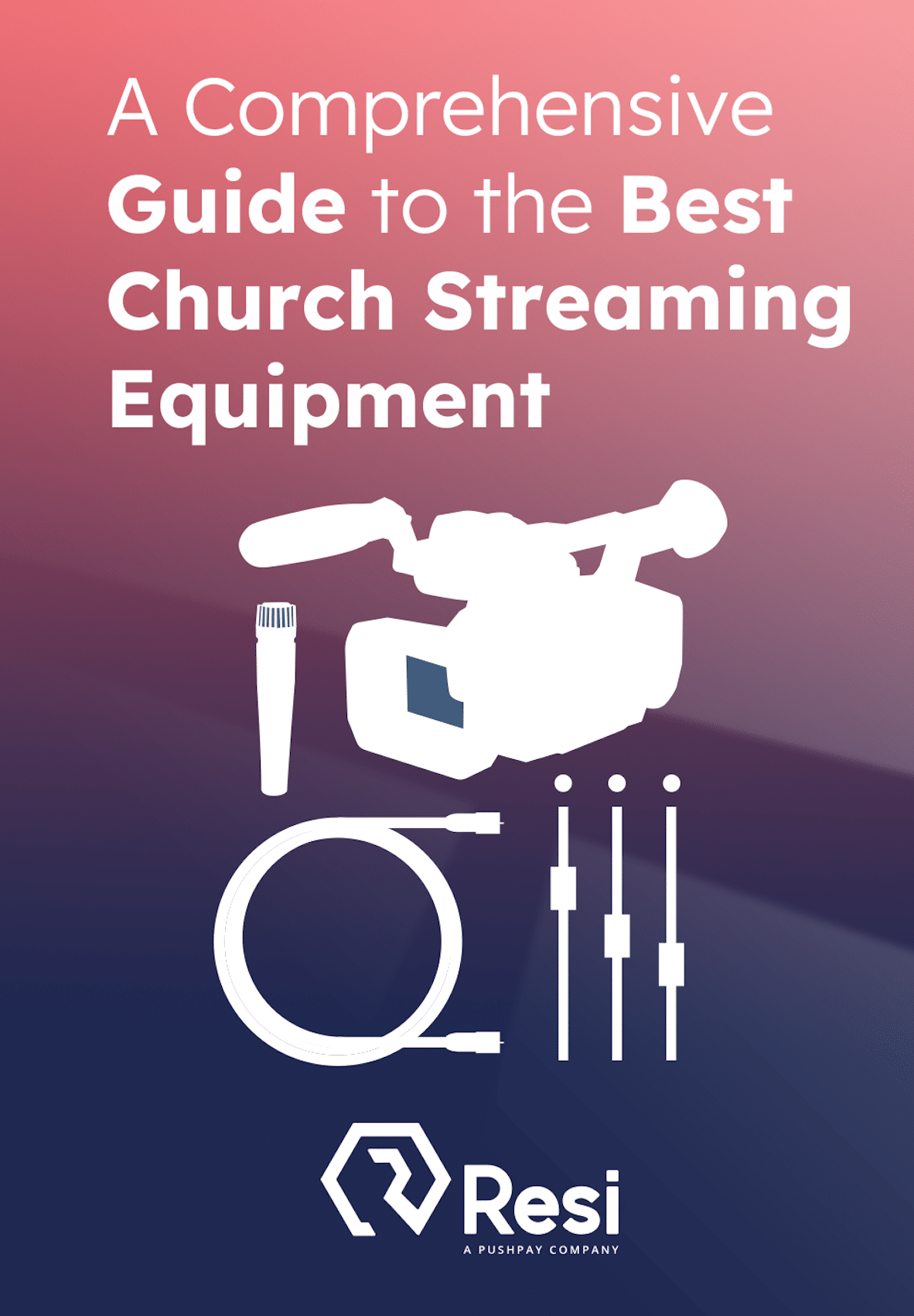
We hear it all the time from Pastors. “We’re too busy doing physical ministry to put much energy into online.” And so they will broadcast their online services, which is easy. But leaning into the relational aspects of online, much less the discipleship concepts, even… few churches have taken that step. That being said, I would suggest to you the best resource for digital ministry in your church is already available to you, sitting in your pews. Pastor, it’s time to go after the geeks and the nerds to be your church volunteers.
Discovering the Perfect Online Church Volunteer
Let me backup and tell you a fun story. I spoke at an online church conference during COVID-19, and Cathy was in the audience. Throughout my session (where I was talking about the Church in virtual reality), Cathy kept making statements in the online chat room supporting ministry in VR. When I was done speaking, Cathy quickly privately messaged me. Turns out Cathy was a bible student in Canada. She was serving at a physical church but writing her thesis on ministry in virtual reality. We discussed her thesis via the private chat room on Zoom, and I was impressed with her ideas. I offered to connect Cathy to some VR pastor friends, and we agreed on a time to meet.
For this call with my pastor friends and Cathy, I suggested we meet on Zoom, where Cathy, myself, and a VR pastor friend could all see each other. Unfortunately, my pastor friend canceled 10 minutes before the call, but I kept the appointment with Cathy to talk with her. Looking at this girl via the Zoom webcam, I was unimpressed. She was not comfortable communicating. The clarity of vision she had earlier in the text chat room became very cloudy, mirky. She was, if I’m honest, a disappointment. I wrapped up the call as soon as possible, but Cathy was very interested in meeting my pastor friend, so I hesitantly said we would meet again with my pastor friend.
Master the Art of Church Metrics
Get insights on how to analyze your data, spot trends, and transform these findings into strategies that propel your ministry forward.
Download now
I warned my pastor friend about my disappointment with Cathy, but he agreed to meet. This time, we met in his virtual reality office. Instead of a webcam being on Cathy, we could only see her avatar, her voice, and her type in a text/chat box. In this second meeting, I actually suspected that Cathy was a completely different person. In the virtual reality environment, she was eloquent, had a clear vision, was a dynamic communicator, and could express her calling. The experience was shockingly different.
I started to ask myself why there was a difference, and I theorized that Cathy suffered from some social anxiety. The webcam, being seen in her physical self, prevented her from communicating clearly. As I talked with her in subsequent meetings, I discovered she was struggling with physical ministry (she was serving in her church’s youth group, as she was not enjoying it as much as digital and virtual reality). In my later meetings with Cathy, my theory continued to become true. She struggled to do ministry if she were visually seen, but she had much ministry potential in the digital world.
Empowering “Wallflowers,” “Geeks,” and “Nerds” to Become Church Volunteers
As a Pastor, I understand it’s easy to discredit those like Cathy in your church. To be honest, Cathy would probably disappear in most churches. Her social anxiety is something that could be resolved in time. But what if your church leaned into those not as comfortable in the pews and empowered them to do ministry differently… digitally?
I mean no offense by the terms “wallflowers,” “geeks,” and “nerds”! These are not derogatory terms in my context. But I’m curious: as you think about your church’s volunteer leadership or across all your physical attendees, can you think of people who might fit this description? Are they active and fulfilled via ministry? Or are they watching from the outside because they don’t fit into your physical paradigm? In my experience as a digital pastor, some of the best volunteers serving online and in the tech space do not fit the mold of physical ministry. Seeing the diamond through the coal may take a creative eye, but the payout is often worth the effort. There is digital ministry value in the square pegs that won’t fit in the round hole.
Everyone has potential for Digital Ministry & Tech
Cathy’s story is a bit extreme, and connecting with “wallflowers,” “geeks,” and “nerds” is a great place to start recruiting people for online church volunteers. But at some point, you’ll probably run out of opportunities here. Where else should you go to recruit?
- Older Generation – Some of the best online church volunteers I’ve had are senior citizens who extend their ministry life by doing it online. Okay, you may have to coach through some tech, but they can interact in a chat room if they can text on their phone.
- Career Flexible – Digital Ministry is often incredibly flexible, time-wise. Not just on a Sunday morning, there are plenty of opportunities during the weekday or late at night. Inviting those who are career flexible to serve digitally frequently allows them to fit into the church’s ministry, which they would not be able to accomplish if they were serving physically.
- People Moving Away – “Well, we’re sorry to see you go! Hope you find a church in your new city.” There is some validity in cutting ties when a person is physically moving away from your church. Recently, some non-scientific polls have shown that it takes six to twelve months for a person relocating to a new town to find the church they want to attend if they attend at all. What if your church helped their physical transition and involved them in ministry digitally? PS – that same logic applies to high school students when they go away to college.
Taking Back Monday: A Church Tech Director’s Guide to Saving Time
With this resource, you can take back time on Mondays and focus on what matters most—serving your ministry.
Download for free!
- Tech-Savvy People – There’s an incredible opportunity for tech-savvy people to serve as online church volunteers…
- Non-Tech Savvy People – …But remember, the digital ministry is not about tech but relationships. If a person can be relational and type on a keyboard, they have incredible potential to serve your church digitally whether its supporting livestream production, chat or on social media. Online church volunteers don’t have to be tech geniuses to have an opportunity to serve.
Equipping All to Serve Christ, Digitally
Let’s be honest: digital ministry is somewhat out of the box. Not only is it hard for Pastors to understand, but sometimes it’s hard for church volunteers to understand. How do you get these people to serve in digital ministry?
- Have a dynamic vision – Getting people to serve as chat hosts online without understanding how the online service fits into your discipleship process is problematic. Make sure the volunteers know, upfront, why they are doing what they’re doing.
- Use simplified systems – Remember that platforms need to be simple to involve volunteers in your ministry processes. Left unchecked, technical systems will default towards complexity. Be and stay intentional about making sure systems operate simply. The most powerful software option is oftentimes the most complicated feature set. Keep it simple!
- Set clear expectations – Digital ministry can be a 24x7x365 job. Digitally, doors never close. Social media always stays open. Websites are always available. Video is on demand. It can be very taxing physically and emotionally for volunteers (and staff) to always be accessible digitally. Establish shifts for which volunteers are available and subsequently “not available.” A good example of this is church technology should not send a direct message or push notifications to smartphones at 3 am unless the church volunteer wants to be accessible at 3 am.
- Ask for input – Digital ministry is a new concept. Even the best of churches are still learning. Don’t assume your church knows what’s going on. Take the time to get feedback. Ask questions. Learn from the church volunteers on the digital frontlines. What’s working? Not working? What can be improved? Your ministry will improve, and the volunteers will feel valued and respected.
- Celebrate wins – This is huge. Online church volunteers serve somewhat in isolation and will need constant reminders of why they do this. Telling them digital success stories… people finding Jesus, marriages saved, disciples made… is an incredible way to excite and inspire the current volunteer base. If you’re not getting stories to celebrate, that opens up an entirely different set of issues.
The Digitally Resilient Church Webinar
Featuring Jeff Reed from THECHURCH.DIGITAL, learn to leverage your digital strategy and livestreams for maximum local reach and community impact.
Access Now






